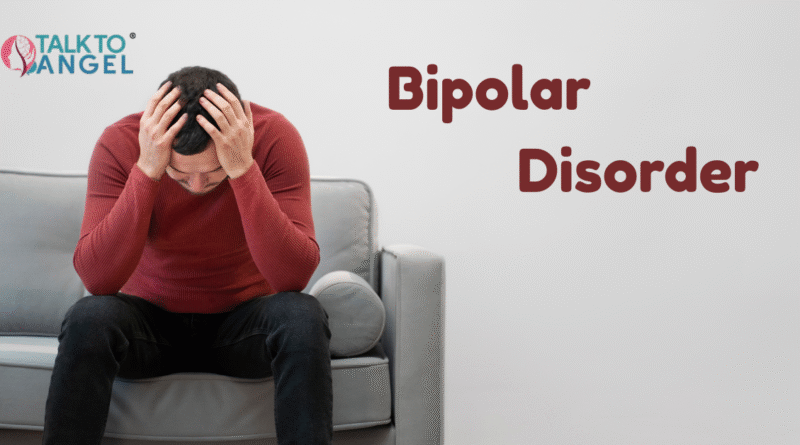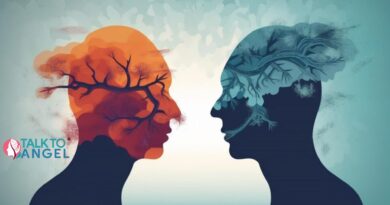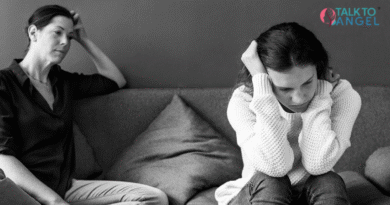Is it Bipolar Disorder or Just Intense Mood Swings?
In today’s fast-paced world, experiencing fluctuations in mood is common. Stress, fatigue, relationship troubles, and even daily disappointments can lead to emotional highs and lows. However, when these mood changes become extreme—swinging from euphoric, hyperactive states to deep, overwhelming depression—it could be more than just everyday emotional shifts. It might be bipolar disorder, a serious mental health condition that affects millions worldwide. Distinguishing between ordinary mood swings and bipolar disorder is critical, especially to initiate timely treatment and avoid complications like substance abuse, anxiety, or suicidal tendencies.
Understanding Bipolar Disorder
Bipolar disorder, formerly known as manic-depressive illness, is characterized by unusual shifts in mood, energy, activity levels, and the ability to carry out daily tasks. Individuals with bipolar disorder typically experience intense emotional states known as manic episodes (abnormally elevated mood) and depressive episodes (deep sadness and hopelessness). These episodes are far more severe than the typical ups and downs that most people face.
According to leading clinical psychologists in India, bipolar disorder isn’t simply about being “moody.” It involves episodes that can last days, weeks, or even months and can seriously impair a person’s functioning. Unlike typical mood swings, bipolar mood changes are persistent and come with specific patterns, behaviors, and even physical symptoms.
How Bipolar Disorder Differs from Everyday Mood Swings
Everyone experiences mood changes—whether it’s feeling down after a stressful day or excited about good news. These spontaneous emotional changes are typically fleeting and situational. Bipolar disorder, however, goes far beyond the typical highs and lows of daily life.
In bipolar disorder, mood swings are characterised by their pattern, severity, and bipolar disorder apart. Rather than responding to external events, mood episodes in bipolar disorder often arise without a clear trigger and can persist for weeks or longer. These shifts are intense, may feel uncontrollable, and often interfere with personal, social, and professional responsibilities.
While mood swings might involve frustration, irritability, or short-term sadness, bipolar episodes can bring about:
- Extreme elevation in mood or irritability, sometimes accompanied by racing thoughts, impulsivity, and a reduced need for sleep
- Severe emotional lows, accompanied by enduring weariness, despair, and a lack of interest in once-enjoyed activities
- Uncharacteristic behavior, such as taking major financial risks or making sudden life changes without considering consequences
- Significant impairment, including difficulties in maintaining relationships, work performance, and personal safety
If such experiences begin to feel overwhelming or cyclical, it may point toward a mood disorder rather than everyday emotional changes. In such cases, speaking with a qualified clinical psychologist can provide clarity and guide the path to effective care.
The Role of Psychotherapy in Treating Bipolar Disorder
Psychotherapy plays a crucial role in managing bipolar disorder, alongside medications like mood stabilizers or antipsychotics. Some of the most effective therapies include:
- Cognitive Behavioral Therapy (CBT): Helps individuals identify and change negative thought patterns that contribute to mood episodes. Coping strategies for managing manic and depressive episodes are also taught by CBT.
- Dialectical Behavior Therapy (DBT): A structured form of CBT, DBT is especially helpful for emotional regulation and reducing self-harming behaviors. It promotes mindfulness, stress tolerance, and better interpersonal effectiveness.
- Psychoeducation: Educating individuals and their families about bipolar disorder helps reduce stigma, improve medication adherence, and prevent relapses.
Comorbid Conditions: Anxiety and Substance Abuse
It’s common for bipolar disorder to coexist with other mental health conditions. Bipolar disorder and anxiety disorders, for instance, can co-occur, making the emotional turmoil worse. Substance abuse is another frequent companion; individuals may use drugs or alcohol to manage bipolar disorder symptoms, leading to a dangerous cycle of addiction and worsening mental health.
Timely intervention from experienced clinical psychologists can break this cycle. Online counselling platforms, like TalktoAngel, offer access to licensed professionals from the comfort of home, making mental health support more accessible and less stigmatized.
When to Seek Help
If you notice persistent and intense mood changes—especially if they interfere with work, relationships, or your sense of self—it’s time to consult a mental health expert. Don’t wait until a crisis occurs. Early diagnosis and treatment can significantly improve outcomes.
One of the top-rated facilities for comprehensive mental health care is the Psychowellness Center, a leading mental health wellness clinic in Delhi. Staffed by some of the best psychologists in India, the center offers specialized therapy for bipolar disorder, anxiety, depression, and other conditions. Their integrative approach includes in-person and online counselling, ensuring support is always within reach.
TalktoAngel: Bridging the Mental Health Gap
Digital mental health platforms like TalktoAngel have emerged as game-changers in India’s mental healthcare landscape. Their network includes some of the best psychologists in India, offering therapy sessions for mood disorders, anxiety, and more. Their services are HIPAA-compliant, confidential, and tailored to individual needs. Whether you’re based in a metro city or a rural town, help is just a click away.
Final Thoughts
It’s critical to recognise that bipolar disorder is a treatable mental health condition rather than a personal weakness. The stigma around mental health often prevents individuals from seeking help, but recognizing the signs and reaching out is the first step toward recovery. Access to bipolar disorder counselling in Delhi through experienced clinical psychologists and mental health wellness clinics makes it easier for individuals to receive the support they need in a professional and compassionate environment.
If you’re unsure whether you’re experiencing normal mood swings or something more serious, speak with a licensed clinical psychologist. Through a combination of Cognitive Behavioral Therapy, Dialectical Behavior Therapy, medication, and support from platforms like TalktoAngel and clinics like Psychowellness Center, managing bipolar disorder is possible—and so is leading a fulfilling, balanced life. Let’s normalize seeking help and acknowledge that mental health is just as important as physical health. If you or a loved one needs support, don’t hesitate to connect with the best mental health wellness clinic in Delhi. Healing starts with a conversation.




